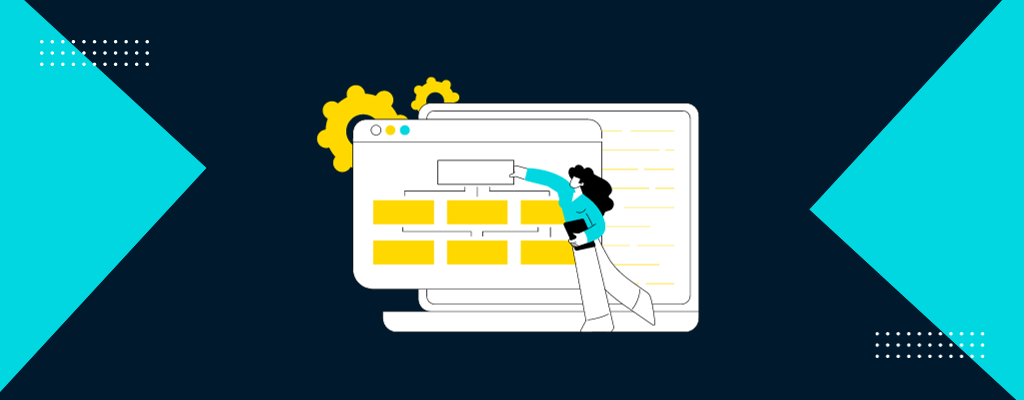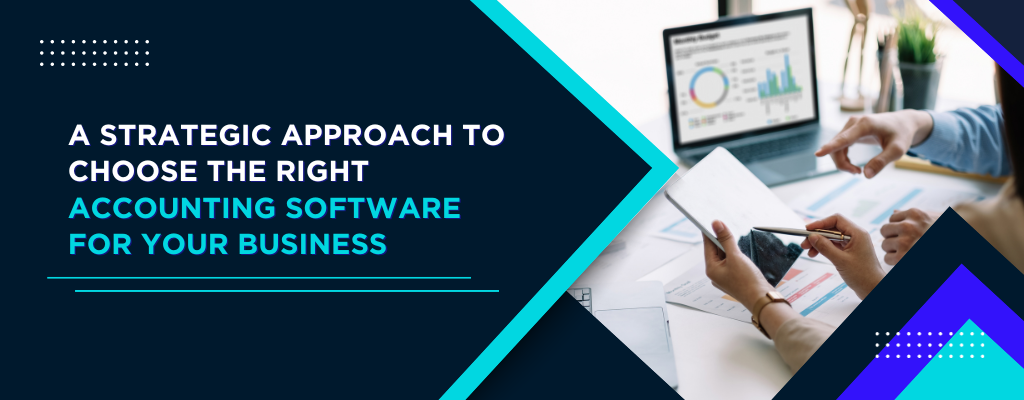A Strategic Approach to Choose the Right Accounting Software for Your Business
Managing your accounts is one of the most challenging aspects of owning a small business. As your company expands, your finances might become increasingly sophisticated and challenging. So, it is high time for small company owners to use accounting software. Good accounting software streamline accounting operations ranging from bookkeeping to tax preparation.
But it is hard to believe that 51% of small firms in 2022 either do not use any software to handle their finances (21%) or merely use Excel or Google spreadsheets (30%) (McCabe, 2022). A modest advantage may go a long way in a highly competitive economy.
You need insights that simplify your business finances and guide agile and strategic decision-making, not just correct bookkeeping to account for your company’s income and spending. Accounting software assists businesses in gaining control by simplifying their finances and providing tools for creating documents such as balance sheets for tax filing.
It may frequently be smoothly integrated with POS and IT infrastructure. But, with so many options available, how do you determine which accounting software is best for your business?
In this section, we will look at how to select the finest company accounting software for your SME.

How to Choose the Best Accounting Software for Your Business
Let’s examine some factors business owners should consider when selecting accounting software.
Flexibility and Adaptability
Accounting software for small enterprises should provide customisable functionalities to meet the specific demands of your operations. The top corporate accounting software systems include many functions, allowing organisations to select the capacity that best meets their needs. Thanks to flexible tiered pricing, users can adjust their offerings per their demands.
Comprehensive Reporting
Accounting for small businesses needs rapid and straightforward access to the correct data. This is crucial for cash flow visibility. Accurate reporting with detailed detail may give you the information you need to make expenditure and operational decisions. Even if you wish to keep things simple, you should have real-time access to accurate and up-to-date financial data.
Integration
To be effective and adaptive, small firms must use simplified procedures. As a result, the finest accounting software for small businesses works in tandem with POS systems and the rest of the company’s digital architecture (for example, e-commerce platforms, bookkeeping, and payroll systems).
Support
A frequent aspect of small business management is hoping for the best while planning for the worst. Technical issues may wreak havoc on operations and befuddle small teams. As a result, the finest accounting software frequently includes technical assistance and self-help options for company customers.
Some of the Most Effective Accounting Software Platforms
After discussing what business owners should look for in small business accounting software, let’s look at some of the finest. We investigate the features of five leading company accounting software programs to assist you in selecting the best one for your SME.
Xero is the Best Option for Scalability.
With clever spending management and a fantastic mobile app enabling business leaders to track their company finances on the go, Xero has much to recommend. However, due to the very scalable nature of its product, it will appeal to growth-hungry SMEs.
Sage: Best for Numerous Users
Sage accounting software is an excellent all-arounder with highly customisable capabilities, making it a suitable choice for SMEs of all sizes. And, with monthly fees beginning at £12, it’s affordable.
It has an easy-to-use interface and award-winning support, and it can be set up so that many users may access its array of features via a web browser or mobile app. Users may also add payroll features for free for the first three months, then for an extra £7 each month.
Quickbooks is Ideal for Freelancers.
Quickbooks is perhaps the most complete company accounting software on the market, featuring options for everyone from sole proprietors to large corporations. However, if you’re a freelancer, you’ll profit immensely from the self-employed package, which starts at £1 per month for the first six months and increases to £10 per month after that.
This allows freelancers to plan for self-assessment and obtain income tax projections, permitting them to budget appropriately.
Kashflow is Best Suited for VAT-Registered Enterprises.
KashFlow is another excellent alternative for individuals seeking a primary, user-friendly cloud accounting software platform. KashFlow supports direct VAT filing, which might make things easier for expanding enterprises that must register for VAT. Run a VAT report, insert your HMRC reporting information, and submit.
Its straightforward solution also includes sophisticated reporting, such as compiling a ‘company health check’ score and receiving recommendations on improving it—all for less than £30 (including VAT) each month, including payroll.
Freshbooks is the Best All-Rounder.
Freshbooks is a good all-arounder for businesses searching for a good all-arounder. This cloud-based company accounting software, designed exclusively for small business owners, retains a simple and user-friendly interface while providing comprehensive functions.
Freshbooks will continue to fulfil your demands as your business expands, from invoicing in several currencies to expenditure monitoring, time tracking, and report generation. Recurring billing and automatic payments, for example, make it a strong fit for subscription-based businesses and assist in simplifying customer relationship management.
Choose the Best Accounting Software to Run Your Business Efficiently
Examine all the positive aspects it might bring to your firm rather than viewing accounting software only as compliance or a rigid business need.
UK firms can benefit from streamlined tax reporting and more time to focus on expanding their operations. Finding the finest accounting software can be time-consuming, but it is well worth the effort if you take the time to examine your needs.
Have you discovered the answer you’ve been looking for? If not, you can get in touch with Outbooks. Outbooks provides outsourcing solutions for all your business operations and accounting needs using the best accounting software.
If you want more details, please don’t hesitate to write us at [email protected] or contact us at +44 330 057 8597.

Frequently Asked Question
Do I require accounting software for my business?
All firms are required by law to keep proper financial records. While you can keep handwritten accounts, accounting software will most likely help. It removes the need for repetitive data entry, can be accessed at any time and location, and is more secure.
What are the advantages of utilising accounting software for small businesses?
Accounting software has various advantages over human accounting:
- It reduces the need for repetitive data entering.
- It does all computations automatically, reducing the possibility of mistakes.
- It is more adaptable since the information may be accessed securely wherever and whenever you (or your employees) require it.
- You have real-time access to up-to-date financial data, which you can share with your accountant, enhancing communication and saving time.
How safe is internet accounting software?
You should conduct your research before selecting an online accounting software supplier. Use the same security measures as any other cloud computing service.
Check that the online accounting software you choose has an excellent track record of data security. Examine internet reviews to identify any potential problems.
How can I ensure that my accounting software is HMRC-compliant?
Your accounting system must comply with your legal duties to keep accurate records. If you’re registered for VAT, ensure HMRC accepts forms and returns from your preferred business accounting software by looking for software compatible with Making Tax Digital for VAT.

